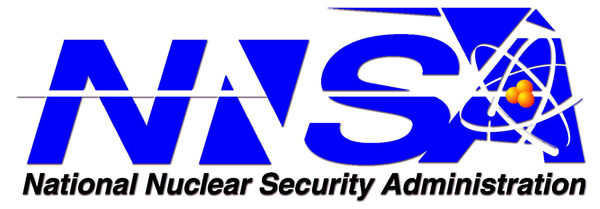The security of the U.S. nuclear stockpile and classified nuclear research sites in the United States is overseen by the National Nuclear Security Administration (NNSA). Now a new report by the General Accounting Office accuses the NNSA of increasing risks and reducing security in the past few years to reduce overhead costs.
In 2009, the NNSA worked to reform security measures with the intent of cutting costs by about fifty three million dollars. The reforms gave independent contractors working for the NNSA "greater authority to make security decisions and accept risks." In addition, the contractors were allowed to self-monitor and self-evaluate the performance. The GAO report charges that these reforms “increased security risks and reduced security performance” at sites secured by the NNSA. The NNSA now admits that some of the changes made after 2009 called for cutting critical protective posts and patrols critical to securing sensitive sites.
Two years ago there was a major breach in security at Y-12 National Security Complex in Tennessee , one of the sites secured by NNSA. Three people gained access to a protected area adjacent to one of the U.S.'s most important nuclear weapons facilities in the U.S. Although security reforms were enacted by the NNSA because of the 2012 breach, the GAO says that the new reforms have not diminished the risks of further security breaches of this kind. It has been suggested that the breach in security at the Y-12 complex in 2012 was made possible by the reforms started in 2009.
The GAO report states that the NNSA suffers from a chaotic and dysfunctional security policy. The NNSA security procedures vary from site to site and the NNSA have been unable to “fully [resolve] long-standing security management and oversight problems,” according the GAO report. The GAO report states that the NNSA has put into place "short-lived or ineffective responses to its security problems, on which GAO and others have reported for more than a decade.”
“The NNSA took a number of actions designed to improve its security performance and oversight but did so without first developing a clear vision and path forward for its security program and an implementation strategy, including milestones and responsibilities for carrying them out,” according the GAO report.
Since the breach at the Y-12 complex, the NNSA started and then cancelled a security inspection program. They also reorganized their headquarters security twice. What the NNSA has not done is create an NNSA security "road map" as advised by an NNSA security task force in response to the Y-12 complex breach. The GAO continues to pressure the NNSA to create such a road map.
Considering the havoc that a terrorist attack on a NNSA secured site could wreak, it seems that cutting corners in nuclear security to save fifty three million dollars is a very bad idea.
